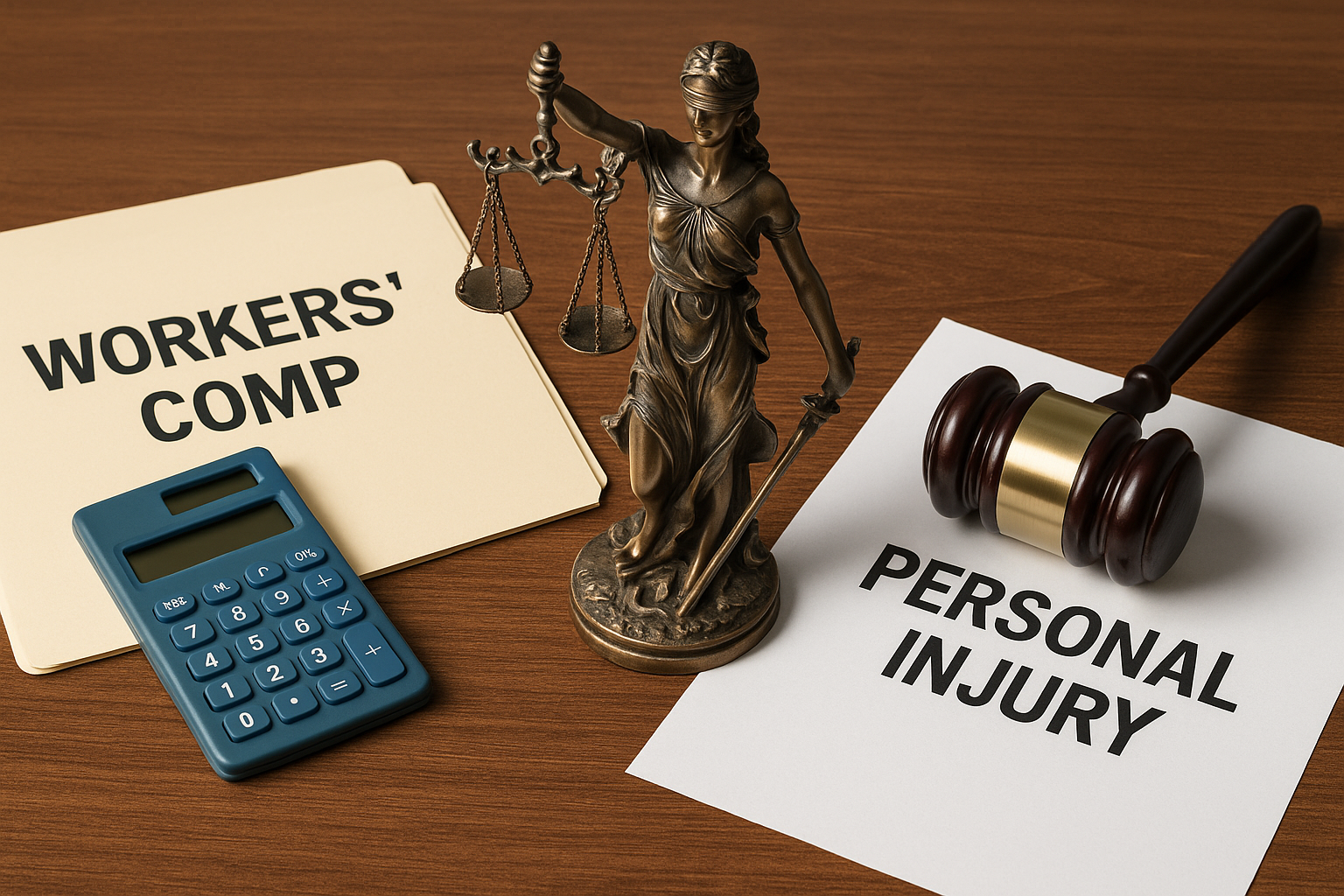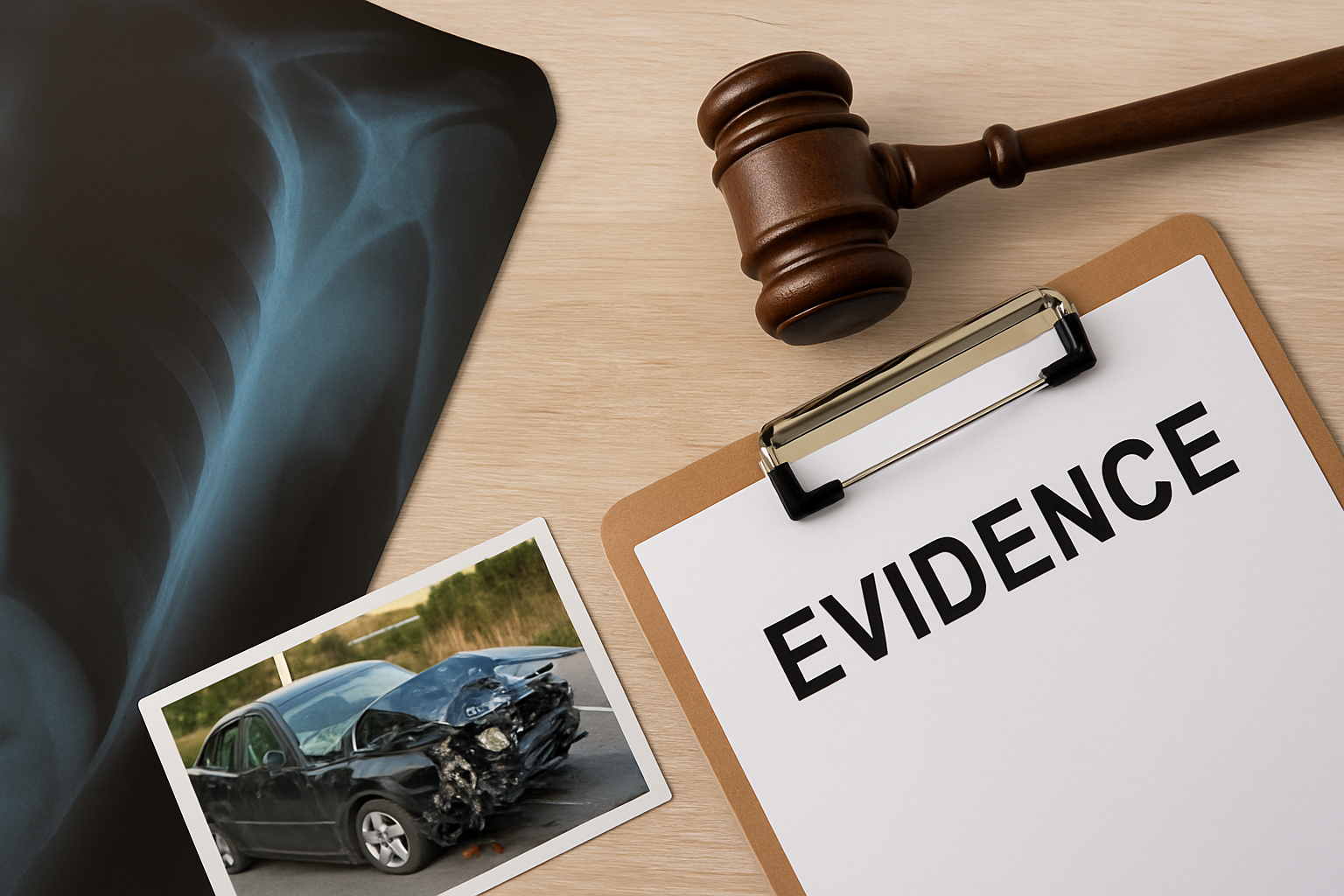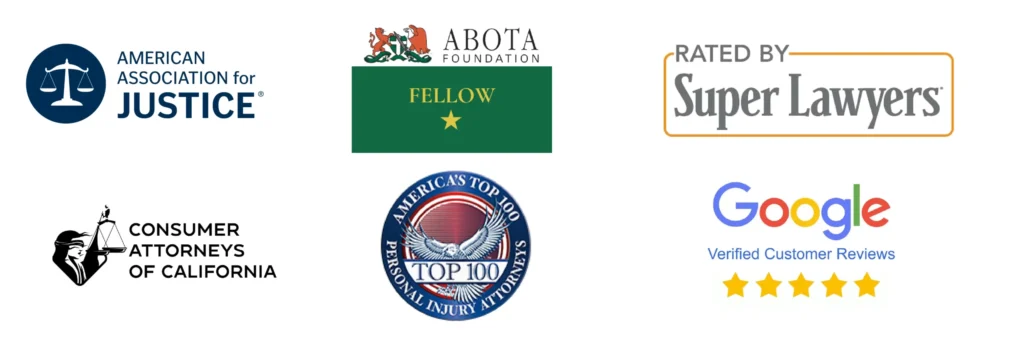If you’ve been injured, one of the first questions that comes up is whether your case falls under workers’ compensation or a personal injury claim. While both involve compensation for injuries, the laws, benefits, and processes are completely different. Understanding workers’ comp vs. personal injury can help you determine the right legal path toward recovery.
What is workers’ compensation?
Workers’ compensation is an insurance system that provides benefits to employees who suffer injuries or illnesses while performing their job duties. It’s a no-fault system, meaning you don’t have to prove that your employer caused your injury to receive benefits.
Typical benefits include:
- Medical care for treatment and rehabilitation
- Temporary disability payments if you can’t work while recovering
- Permanent disability benefits for lasting impairments
- Vocational retraining if you can’t return to your prior role
California law requires most employers to carry workers’ comp insurance, ensuring employees can receive benefits without needing to sue their employer.
What is a personal injury claim?
A personal injury claim arises when someone’s negligence or intentional actions cause harm. Unlike workers’ comp, fault plays a central role. You must show that another party was negligent or legally responsible for your injuries.
Personal injury cases include:
- Car, truck, and motorcycle accidents
- Slip and fall or premises liability accidents
- Product defects and unsafe equipment
- Dog bites or assaults
In these cases, you can recover compensation for both economic and non-economic damages, including pain and suffering — something workers’ comp doesn’t cover.
Key differences between workers’ comp and personal injury
To help you clearly understand how these two legal paths differ, the table below highlights the main distinctions between workers’ compensation and personal injury claims.
| Factor | Workers’ Compensation | Personal Injury Claim |
|---|---|---|
| Fault Requirement | No need to prove fault | Must prove another’s negligence |
| Compensation | Covers medical bills, lost wages, disability | Covers medical costs, lost income, pain and suffering, and more |
| Right to Sue | Can’t sue your employer (except in rare cases) | Can sue negligent parties directly |
| Process | Filed through employer’s insurance | Filed in civil court or settled privately |
| Emotional Damages | Not covered | Recoverable if proven |
This distinction often determines how much compensation you can pursue — and who is legally responsible for paying it.
Can you file both workers’ comp and personal injury claims?
In certain cases, yes. You might qualify for both claims if a third party (not your employer or coworker) contributed to your injury.
For example:
- A delivery driver injured in a crash caused by another motorist may file workers’ comp for medical costs and a personal injury lawsuit against the at-fault driver.
- A construction worker hurt by defective equipment may file workers’ comp and sue the manufacturer for negligence.
This dual approach can maximize recovery, but managing both claims requires careful legal coordination.
Learn More: How to File Claim After a Construction Site Injury
When does workers’ comp apply?
Workers’ comp applies if your injury occurred while performing job duties or within the scope of employment. Even if your employer didn’t directly cause the accident, you’re likely covered.
Common examples include:
- Falling or slipping at a job site
- Developing repetitive stress injuries like carpal tunnel
- Suffering burns or cuts from machinery
- Being injured during a work-related trip
However, injuries caused by horseplay, intoxication, or off-duty activities are typically excluded from coverage.
When does personal injury law apply?
Personal injury law applies when your injury results from someone else’s negligence, regardless of whether you were at work.
Examples include:
- A contractor hit by a reckless driver while traveling between job sites
- A customer slipping on a wet floor in a store
- A tenant hurt by a landlord’s failure to fix unsafe stairs
These cases require proving four elements: duty of care, breach, causation, and damages. Without evidence of negligence, compensation may be limited to what workers’ comp provides.
What are the advantages of a personal injury claim?
While workers’ comp offers guaranteed benefits, personal injury claims often provide greater financial recovery.
Advantages include:
- Pain and suffering damages that recognize emotional and physical distress
- Full wage recovery rather than a partial rate
- Punitive damages in cases of gross negligence or misconduct
- No benefit caps for certain losses
The downside is that personal injury claims require stronger proof and take longer to resolve than workers’ comp cases.
What if your employer denies your workers’ comp claim?
Workers’ comp denials are common, but not final. Employers or insurers might claim your injury wasn’t work-related or that you delayed reporting it.
If denied, you can:
- Request a review by the California Workers’ Compensation Appeals Board
- Submit supporting evidence such as medical reports and witness statements
- Work with an attorney to negotiate or appeal the decision
Having legal representation ensures that your rights are protected and deadlines are met.
How to decide which claim to pursue
Choosing between workers’ comp and personal injury depends on your circumstances:
- Were you injured on the job or off-site?
- Was someone outside your workplace responsible?
- Do you want to pursue pain and suffering damages?
In many situations, a lawyer can evaluate both avenues and determine if you qualify for dual claims — maximizing your potential compensation.
The intersection of workers’ comp and personal injury law
Some cases fall in a gray area. For instance, independent contractors may not qualify for workers’ comp, but can file a personal injury claim. Conversely, misclassified employees might be entitled to workers’ comp benefits even if labeled as contractors.
California’s strict labor laws often protect workers in these situations, but navigating them without legal help can be confusing.
How a lawyer can strengthen your claim
Both types of cases involve complex paperwork, deadlines, and negotiations. A skilled personal injury attorney can:
- Investigate the cause of your injury
- Identify all liable parties
- Gather medical and employment evidence
- Handle insurer and employer communications
Let Knapp Moss help you decide
Determining whether your situation qualifies as workers’ comp or personal injury isn’t always simple. Missteps in filing, timing, or documentation can reduce or delay your benefits. Consulting with an attorney early ensures you file under the correct system and preserve all possible claims.
At Knapp Moss, we help injured workers and accident victims understand their rights and recover what they deserve. Our team investigates every angle, from workplace accidents to third-party liability, to secure the maximum compensation possible.
Contact us today for a free consultation and find out which claim applies to you.
Frequently Asked Questions
Generally no, unless your employer intentionally caused harm or lacks workers’ comp insurance. In most cases, your exclusive remedy is a workers’ comp claim.
Yes. Workers’ comp benefits often start quickly, while personal injury claims may take months or years depending on complexity and negotiations.
No. Workers’ comp doesn’t cover emotional distress or pain and suffering. These damages are available only through personal injury lawsuits.




